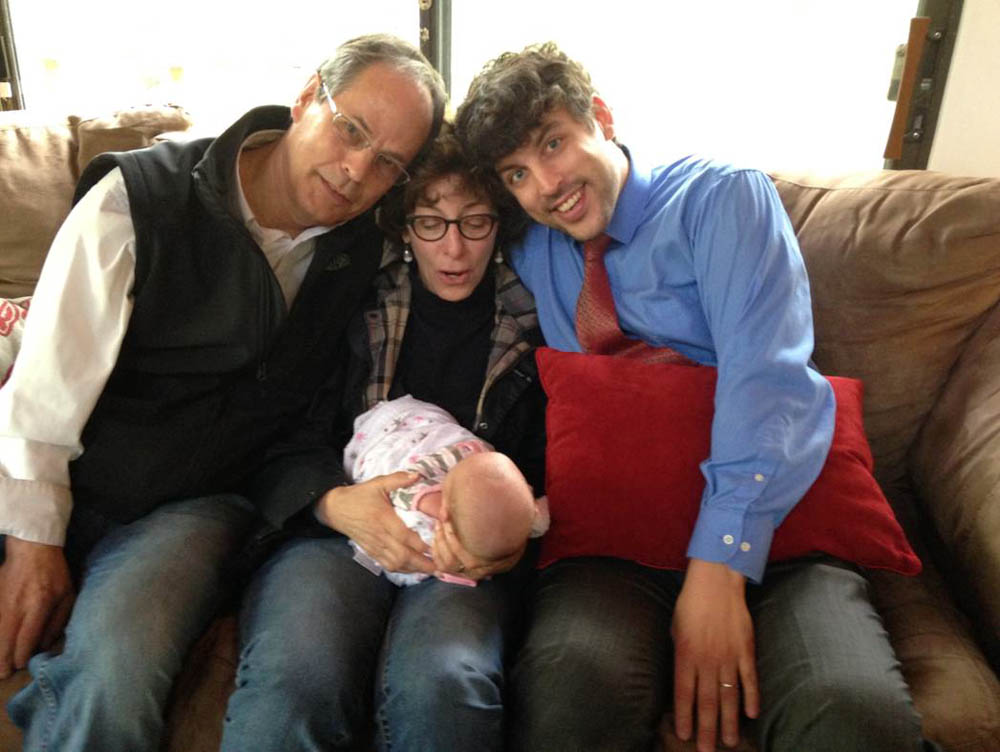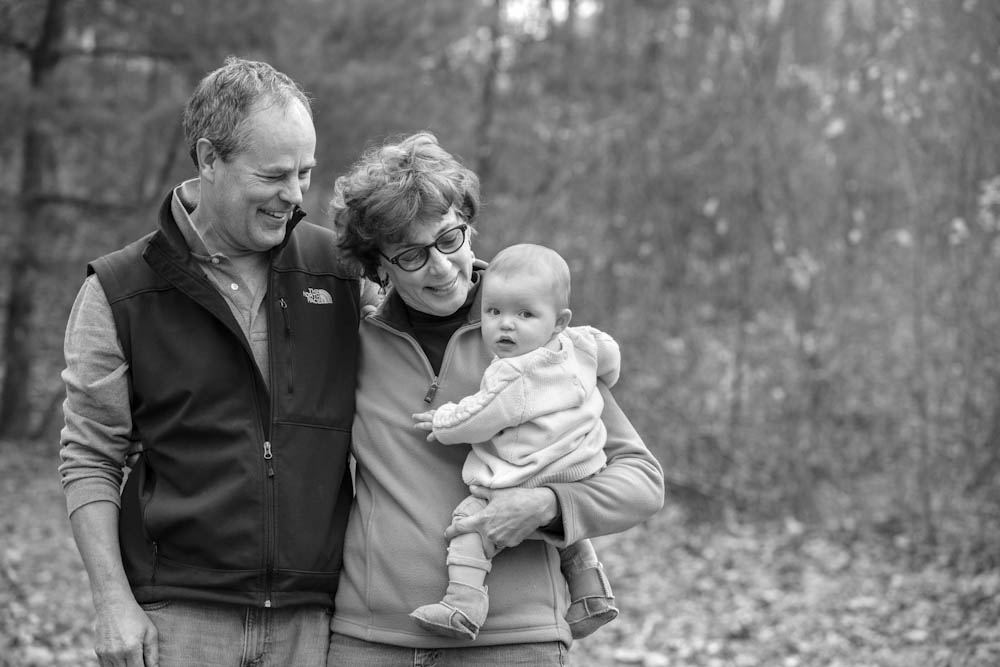The math teacher in Faye Ruopp loves to look at life in equations. One of her favorites after she was diagnosed in June 2014 with breast cancer was “lumpectomy + radiation = mastectomy.” She would notice this theme of “less is more” often during her treatment at Dana-Farber’s Susan F. Smith Center for Women’s Cancers.

Ruopp, 64, was preparing to welcome her son and daughter-in-law back to Boston with their new daughter, Ruopp’s first grandchild, when she received the call no one expects.
“You experience a range of emotions when you get news like that,” she says of her diagnosis of stage I, ER+ breast cancer. “Even though I was shocked and surprised, when you’re a mom and a grandmother you think of your children and grandchildren first, and I wanted to protect them.”
Ruopp had seen her sister and many friends undergo chemotherapy through the years, and was nervous about the impact it would have on her quality of life – particularly her ability to work and spend time with her new granddaughter. Luckily, due to the nature of her tumor, Ruopp was able to forego both chemotherapy and the more invasive mastectomy in favor of a lumpectomy followed by targeted radiation treatment and hormone therapy.
Read more:
She was also comforted by a familiar face in Dana-Farber’s Yawkey Center for Cancer Care – her oncologist Eric Winer, MD, director of the Breast Oncology Program. Winer was a student at Lincoln-Sudbury High School in the mid-1970s, where Ruopp taught math. Although she never taught her future doctor, they remember each other fondly. “He’s an exceptional human being and doctor,” says Ruopp.
As Ruopp prepared for part two of her treatment equation, she was lucky yet again to be eligible for a new treatment protocol of more concentrated radiation over a shorter time period. Instead of 31 cycles of radiation lasting six weeks, Ruopp had 19 cycles for three-and-a-half weeks, experiencing no harsher side effects than with the traditional regimen. “To me, that was an incredible relief,” she says. “Six weeks is a lot of time out of your life, especially when I wanted to be helpful to my family, rather than helpless.”

Ruopp completed her radiation and started hormone therapy in September 2014, which she will take for the next 5-10 years, while continuing to coach math teachers and watch her granddaughter grow. Unlike in math, Ruopp has found that, when it comes to breast cancer, less treatment really can be more.
Faye Ruopp was the featured patient speaker at the 2015 Beyond Boston Susan F. Smith Center for Women’s Cancers Executive Council Luncheon. Watch her remarks below.
